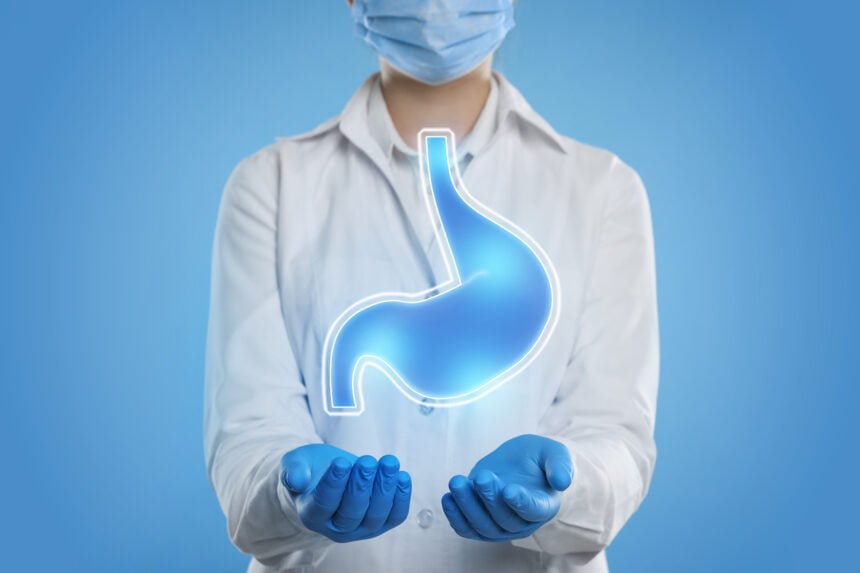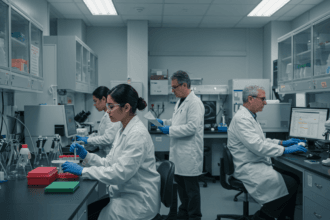Maintaining good health at any age involves regular check-ups and preventive measures. For instance, gastrointestinal screenings are crucial in detecting and preventing digestive system diseases. These screenings are essential for ensuring the early detection of conditions that could otherwise lead to severe health complications.
- 1. Early Detection of Colorectal Cancer
- 2. Prevention of Gastrointestinal Diseases
- 3. Managing Symptoms and Diagnosing Issues
- 4. Reducing Healthcare Costs
- 5. Enhancing Quality of Life
- Recommendations for Screening
- 1. Adults Over 50
- 2. Individuals with a Family History of Gastrointestinal Diseases
- 3. Individuals with a Personal History of Gastrointestinal Conditions
- 4. Individuals with Symptoms of Gastrointestinal Disorders
- 5. High-Risk Populations
- Conclusion
Keep reading for more information about the benefits of gastrointestinal screening and determine whether it’s right for you.
1. Early Detection of Colorectal Cancer
Getting regular gastrointestinal screenings is crucial for catching colorectal cancer early, as it’s a major contributor to cancer-related fatalities globally. However, early screening and detection increase the chances of successful treatment and survival.
Procedures like colonoscopy, particularly in regions with high standards of medical care like Singapore, offer a reliable method for detecting precancerous polyps and early-stage cancer. The importance of a colonoscopy in Singapore and other locations can’t be overstated, as it entails an extensive examination of the colon and rectum, allowing for the immediate removal of suspicious polyps.
2. Prevention of Gastrointestinal Diseases
Gastrointestinal screenings aren’t limited to cancer detection. They can also help prevent various other diseases, such as Crohn’s disease, ulcerative colitis, and diverticulosis. These conditions can be identified early through screenings, allowing prompt treatment to avert complications and improve patients’ quality of life. At the same time, regular screenings enable doctors to monitor the progression of these diseases and adjust treatments accordingly.
3. Managing Symptoms and Diagnosing Issues
Many individuals experience gastrointestinal symptoms like abdominal pain, bloating, and changes in bowel habits. These symptoms may point to undetected issues that require medical attention. Through gastrointestinal screenings, healthcare providers can diagnose the cause of these symptoms accurately. This leads to more effective treatments and management plans tailored to patients’ needs.
4. Reducing Healthcare Costs
Preventive screenings can also contribute to significant savings in treatment costs, as detecting and treating gastrointestinal problems from the onset is often less expensive than managing advanced diseases. Early intervention can also reduce the need for extensive medical treatments, hospital stays, and surgeries, ultimately lowering healthcare expenses.
5. Enhancing Quality of Life
Screenings help individuals maintain better overall health by preventing severe diseases and managing existing conditions more effectively. Early treatment can reduce symptoms and prevent complications, allowing people to lead more active and fulfilling lives.
Recommendations for Screening
The frequency and necessity of gastrointestinal screenings depend on a person’s unique risk factors, age, and medical history. Here’s a detailed guide on who should get gastrointestinal screenings and how often:
1. Adults Over 50
Adults aged 50 and older are generally recommended to begin regular screenings for colorectal cancer. These screenings help uncover early signs of colorectal cancer, substantially increasing the chances of successful treatment. The most common screening methods include a colonoscopy every 10 years if no risk factors are present and no abnormalities are found. Doctors may also recommend annual tests such as FOBT, or fecal occult blood test, and FIT, or fecal immunochemical test. There are also tests conducted every five years, such as flexible sigmoidoscopy and CT colonography or virtual colonoscopy.
2. Individuals with a Family History of Gastrointestinal Diseases
Individuals with a family history of colorectal cancer or polyps, or hereditary conditions like Lynch syndrome or familial adenomatous polyposis, are at higher risk and should start screenings earlier. For these high-risk individuals, a colonoscopy is typically recommended starting at age 40 or 10 years earlier than the youngest case in the immediate family. Screenings should be repeated every five years to monitor and detect any early signs of disease.
3. Individuals with a Personal History of Gastrointestinal Conditions
Those who have previously been diagnosed with colorectal polyps or cancer require more frequent screenings to monitor for recurrence. A colonoscopy is generally recommended every three to five years, depending on the number, size, and type of polyps found. Similarly, individuals with chronic inflammatory bowel diseases like Crohn’s disease or ulcerative colitis should undergo a colonoscopy every one to two years. In this scenario, colonoscopy should start eight to ten years after the initial diagnosis to monitor disease progression and potential complications.
4. Individuals with Symptoms of Gastrointestinal Disorders
Anyone experiencing persistent gastrointestinal symptoms such as unexplained abdominal pain, blood in stool, chronic constipation or diarrhea, and unexplained weight loss should seek medical advice for appropriate screenings. These symptoms can indicate underlying gastrointestinal disorders that require timely diagnosis and treatment. Screenings, including procedures like colonoscopy, upper endoscopy, or imaging tests, should be conducted based on symptoms and a doctor’s doctor’s recommendations.
5. High-Risk Populations
African Americans and other ethnic groups have a great tendency to develop colorectal cancer at a younger age. For these populations, it’s advisable to start screenings earlier, typically at age 45, and repeat them every ten years or more frequently based on individual risk factors. Early and regular screenings can help detect and manage the disease effectively.
Regular screenings tailored to individual risk factors can help prevent, treat, or effectively manage gastrointestinal diseases. By following these recommendations, individuals can take proactive steps towards maintaining their gastrointestinal health and overall well-being.
Conclusion
Regular gastrointestinal screenings are vital for maintaining good digestive health and preventing severe diseases. They offer early detection of colorectal cancer, help manage and diagnose various gastrointestinal conditions, reduce healthcare costs, and enhance overall quality of life. Investing in these preventive measures, such as undergoing a colonoscopy in Singapore, can significantly affect long-term health outcomes. Therefore, it is crucial to prioritize and adhere to recommended screening schedules as part of a comprehensive health care plan.










